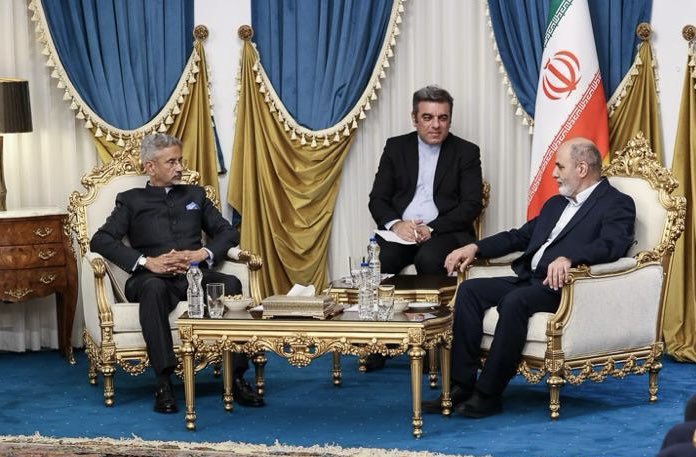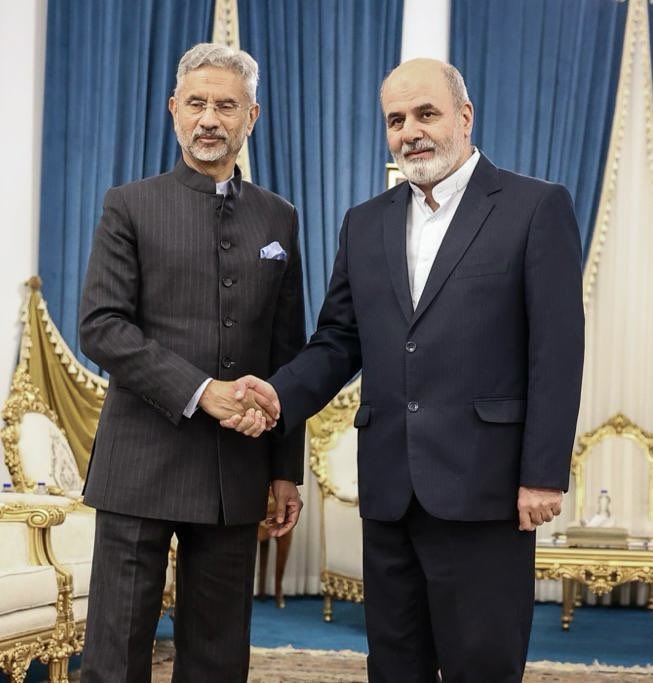Iran Missile Attack on Iraq & Syria: In-Depth Analysis of Its Impact on Europe, India, the US, and the Global Ramifications
Iran Missile Attack on Iraq & Syria
Iran’s ultramodern Defence guards fired missiles in the northern city of Iraq, Erbil, and specific targets in Syria against the ‘anti–Iranian terrorist groups’. These missiles burst up doing massive damaging eruptions making alarms and sirens go off violently. The Iran attack on Iraq & Syria was executed in dead of the midnight. What exactly happened? Why did Iran make such haste decisions? What will be its result on the economy? Will Iraq respond? Will the 2 countries fight each other now?
Outlook of the recent attacks of Iran on Iraq & Syria
These missile strikes by Iran were aimed at wiping out the anti-terrorist groups and their secret hideouts. Including the places, they used to plan suicide bomb attacks in Kerman, Iran. The suicide bombing caused 86 deaths this month at the memorial procession for Maj Gen Qassim Suleimani. The same group also attacked the police headquarters in Iran in December, killing 11 officers. The northern city of Iran was struck with heavy missiles which also killed 4 civilians. Another outrageous missile was launched in Syria attacking different groups with the same intent.
It can be easily concluded that this was a violent answer from Iran to Terrorist groups for the misconduct that had been happening within their country.
Iran & Iraq Geopolitics
Iran’s geopolitical importance is of great domination in the Middle East. Its location is at a tactical convergence between the Turkish, Arab, Russian, and Indian areas. Its essence of transportation, export import, and shipments make it very crucial for the Middle East, the Persian Gulf, the Centre, and the sea of Oman. Iran’s goal is to dominate and be a giant territorial power.
Iraq has a significant capability to directly influence the oil markets in the world and it is a great player in the Energy Sector due to its oil production and exports. An economy like this can easily control prices and impact inflation. Iraq is posited as a major key point of trade routes and imports as it shares borders with Saudi Arabia, Iran, Turkey, and many other nations.
If the tensions between Iran, Iraq & Syria grow then the Israel – Palestine war could worsen at a significant level and there would be severe economic and geopolitical repercussions. In the last 14 days, Israel launched an airstrike that killed Hamas’s Chief Militant in Beirut. Lebanon’s Hezbollah which is an Islamic Militant organization struck a major Israeli Headquarters with rockets. The United States has assassinated an Iranian militia commander in Baghdad because Washington officials hold Iranian militias responsible for attacks on American forces in the region. This move by US officials seems to have offended Iraq’s government. Rebels that are supported by Iran have exchanged fires with the US Navy.
These are 3 major countries in the Middle East that are a breath away from a mighty war.
USA, Iran, Israel, Lebanon conflict History
Hamas was Hezbollah’s ally and a great asset against Israel. Hezbollah and Israel are official enemies as Israel invaded Lebanon in 1982. Since then their relations have continuously degraded. After the war broke out between Israel and Palestine, it wanted to support Palestine against Israeli attacks. But it could not take serious action as the fight with Israel might cost Lebanon a fortune. At the same time, it did not want to keep shut to avoid seemingly weak or vulnerable so Hezbollah executed air strikes along the borders to take down Israeli Military groups carefully without indicating the need for war. Approximately Hezbollah fired 80 rockets at Israeli bases but the major question is why Israeli troops did not respond.
This is because Israel was thinking of its 10 thousand civilians who were evacuating their homes to go to communities near Lebanon’s border. Israeli Commanders couldn’t bear Hezbollah’s armed forces for the sake of their Civilian’s security. But the tensions worsened on Monday when an Israeli airstrike killed Hezbollah Chief.

The US placed 2 aircraft carriers in the region. One of them is returning home and the other is being switched with warships. The US made these arrangements to warn Iran and its supporters to contain the war. Unfortunately, Iran did not heed the US’s warning and attacked US military camps in Syria. In response, the US assassinated a militia commander in Bagdad to contain the issue.
Yet again the issue seems to worsen; Iran-backed militant troops called Houthi attacked International Cargo ships in the Red Sea. Both the US and the UK are attacking Yemen to stop Houthis from attacking the cargo ships carrying business goods. For this conflict to be resolved, Israel needs to stop attacking Palestine as demanded by Houthis.
Dr. Jai Shankar Indian Minister Visit to Iran
Dr Jai Shankar visited Iran and met with President Ebrahim Raisi to discuss issues regarding the trade in the Red Sea. He said attacks on ships in the vicinity of India are a matter of “grave concern” to the international community and such threats have a direct bearing on India’s energy and economic interest, underlining that this “fraught situation” is not to the benefit of any party.
Dr Jai Shankar also met Secretary of the National Security Council, Ali Akbar Ahmadian, and Minister of Roads and Urban Development, Mehrdad Bazrpash, and passed on PM Modi’s greetings. He also conveyed his condolences about the Kerman attack. At a mutual Press conference, Dr Shankar said,’ We exchanged perspectives and assessments on certain regional and global issues and developments. Both of us are concerned about the recent events in West Asia. And we emphasized the importance of preventing further escalation of violence and hostilities.”

“India has a long-standing and uncompromising position against terrorism in all forms and manifestations. This remains so very much. At the same time, we strongly believe that it is imperative to avoid loss of civilian life in any conflict situation’.
I stressed the need for all parties to avoid provocative & escalatory actions. As well as to facilitate movement towards dialogue and diplomacy,” he said during the conference statement.
We have even seen some attacks in the vicinity of India. This is a matter of great concern to the international community. In addition that has a direct bearing on India’s energy and economic interests. This fraught situation is not going to benefit any party’ he added.

Impact on World due to Iran’s attack on Iraq & Syria
If the tensions keep rising at this rate, the European population can expect high-cost energy as well as late shipments. Inflation rates will rise and longer-lasting high interest rates will trouble businessmen and consumers in Europe.
According to data analysts, the duration of time to transport oil across the Middle East, from Europe to India will increase by 128%. In general, 12% of global trade numbers use this route for transport. Meaning that this disruption has increased the cost per container to $5000 and $8000 as the containers are being transported through the long route, going around the Cape of Good Hope. This price is 2 to 4 times the actual price and will trouble consumers. The shelf price will be increased and therefore inflation. As the shipment is going through the longer route, the insurance premiums have increased.
The Indian Government told the ECGC (Export Credit Guarantee Corporation of India Ltd.) not to increase insurance premiums to provide some relief to exporters in India. Analysts reckon that Basmati Rice exports are likely to become 20% more expensive for the Western Countries.
In conclusion, not only the shipments will take longer time but will also cost a lot more money to buy the same goods. Analysts predict that Europe’s inflation will rise by 0.7% affecting business and economic activity.
